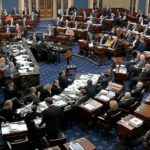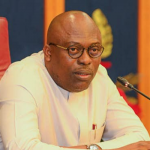Five things to know about Malta, where general elections are being held on Saturday.
– Political turmoil –
A British colony since 1814, Malta became independent in 1964 and a republic in 1974, while remaining in the Commonwealth.
With Maltese and English as its official languages, it joined the European Union in 2004 and the eurozone in 2008.
Only two parties are represented in the single-chamber parliament, the Labour Party and the Nationalist Party, and power lies in the hands of the prime minister.
Current Labour premier Robert Abela was elected by his party in January 2020 after predecessor Joseph Muscat quit in a political crisis.
Muscat was accused of hampering the investigation into the 2017 murder of journalist Daphne Caruana Galizia, who had accused his entourage of corruption.
A 2021 public inquiry found the Maltese state “should bear the responsibility” for her death by creating a “climate of impunity”.
– Dynamic economy –
Malta’s economy outpaced that of eurozone neighbours before the pandemic, driven by tourism, financial services and online gaming.
The onset of coronavirus triggered a massive recession, but it bounced back with growth of more than nine percent last year. In January, Malta recorded unemployment of 3.1 percent, the eurozone’s lowest.
Malta also benefits from offering European passports in exchange for investments, although the programme was suspended for Russians and Belarusians following Moscow’s invasion of Ukraine.
The so-called golden passports scheme has raised 1.1 billion euros since 2013, government figures show.
In 2017, more than a dozen European media organisations in an investigation dubbed the “Malta Files” accused the country of being a “pirate base for tax avoidance inside the EU” — allegations Malta denied.
Malta was placed last year on a “grey list” of countries subject to increased monitoring to counter money laundering and terrorist financing, by the Financial Action Task Force.
– Entry point for migrants –
The archipelago of three islands — Gozo, Comino and Malta — is home to around 516,000 inhabitants living in 316 square kilometres (122 square miles), making it the smallest, and most densely populated, EU country.
South of Sicily and northeast of Tunisia, Malta is a point of entry to Europe for migrants crossing the Mediterranean.
NGOs accuse Malta of ignoring distress calls of boats in the Mediterranean. The Council of Europe’s anti-torture committee found during a September 2020 visit that treatment of migrants held in Malta was “bordering on inhuman” due to “institutional neglect”.
Malta argues it has made significant investments since the report, while noting the challenge it faces, having “the largest share of irregular migrants per capita in the EU”.
– Abortion illegal –
Malta, where Catholicism is the state religion, is the only EU country that completely bans abortion, punishable by up to three years in jail.
But the Times of Malta reported in 2021 that only three women in the last two decades have been convicted, with none serving time behind bars.
Divorce was legalised after a 2011 referendum vote. In 2017, Malta legalised same-sex marriage and adoption by all couples.
Malta in December became the first country in Europe to legalise cannabis and its cultivation for personal use.
– Order of Malta –
After founding a hospital in Jerusalem in 1048, the Knights of Malta were recognised as a lay religious order by the pope, gaining in strength under the First Crusade.
In 1530, Emperor Charles V granted Malta to the Order of Malta — which had continued to protect pilgrims travelling to the Holy Land.
After driving off the Ottomans from Malta in 1565, the order became a key naval power, attacking Barbary pirates in the Mediterranean, plundering their ships and capturing slaves.
Napoleon drove the order from the island after his occupation of Malta in 1798.
Today the order — still a sovereign entity with diplomatic relations with other states — is based in Rome and carries out humanitarian work around the world with the help of volunteers.
AFP










